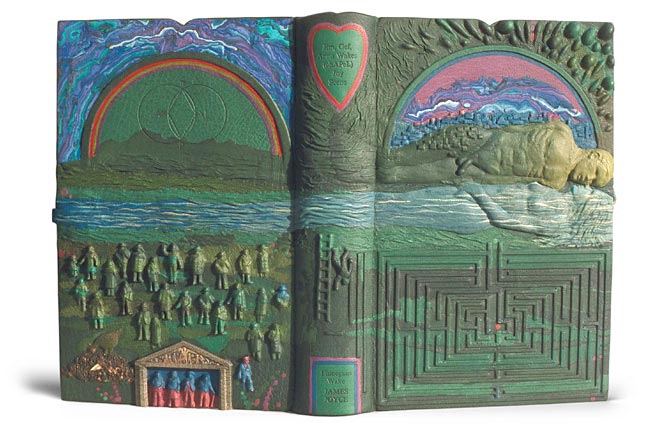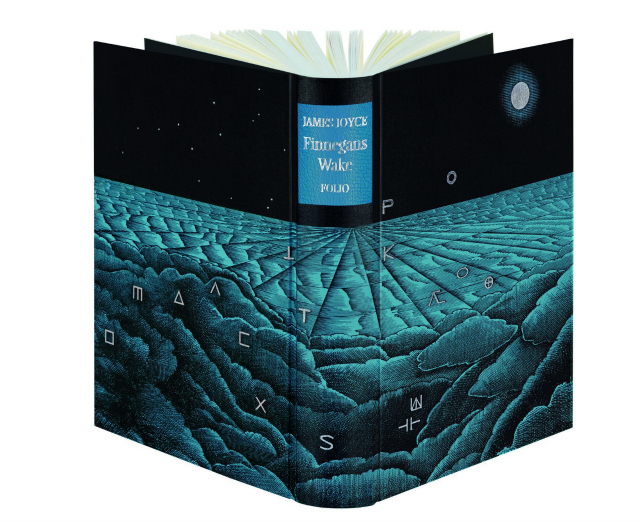 The novel, Joyce’s last, is 628 pages long and takes place over the course of one night as set inside a sleeper’s dream world, written in a dream language of puns, combined words, coined words, words made up on the spot never to be seen in English prose again. Joyce worked through eye operations, poverty, countless apartments, two cities, family turmoil and the gradual disintegration of his only daughter, Lucia. One scholar has suggested that on one level Joyce was trying to break through her madness by using the same kind of language games he had played with her when she was a little girl. We know that he read his work aloud and that she often danced in the room where he was writing. I like that image best of all.
The novel, Joyce’s last, is 628 pages long and takes place over the course of one night as set inside a sleeper’s dream world, written in a dream language of puns, combined words, coined words, words made up on the spot never to be seen in English prose again. Joyce worked through eye operations, poverty, countless apartments, two cities, family turmoil and the gradual disintegration of his only daughter, Lucia. One scholar has suggested that on one level Joyce was trying to break through her madness by using the same kind of language games he had played with her when she was a little girl. We know that he read his work aloud and that she often danced in the room where he was writing. I like that image best of all.
I have not read the book but for a dozen or so pages, but the Irish rhythm of its sentences feels like religion to me, the thing that saves you. Here is a sip of Finnigan’s Wake, its ending first which folds into its beginning*:
And it’s old and old it’s sad and old it’s sad and weary I go back to you, my cold father, my cold mad father, my cold mad feary father, till the near sight of the mere size of him, the moyles and moyles of it, moananoaning, makes me seasilt saltsick and I rush, my only, into your arms. I see them rising! Save me from those therrble prongs! Two more. Onetwo moremens more. So. Avelaval. My leaves have drifted from me. All. But one clings still. I’ll bear it on me. To remind me of. Lff! So soft this morning, ours. Yes. Carry me along, taddy, like you done through the toy fair! If I seen him bearing down on me now under whitespread wings like he’d come from Arkangels, I sink I’d die down over his feet, humbly dumbly, only to washup. Yes, tid. There’s where. First. We pass through grass behush the bush to. Whish! A gull. Gulls. Far calls. Coming, far! End here. Us then. Finn, again! Take. Bussoftlhee, mememormee! Till thous-endsthee. Lps. The keys to. Given! A way a lone a last a loved a long the // riverrun, past Eve and Adam’s, from swerve of shore to bend of bay, brings us by a commodius vicus of recirculation back to Howth Castle and Environs.
James Joyce PARIS, 1922–1939. *The // marks indicate where the novel ends (on page 628) and then begins again (on page 1) so as to form a perpetual cycle of history and night.
